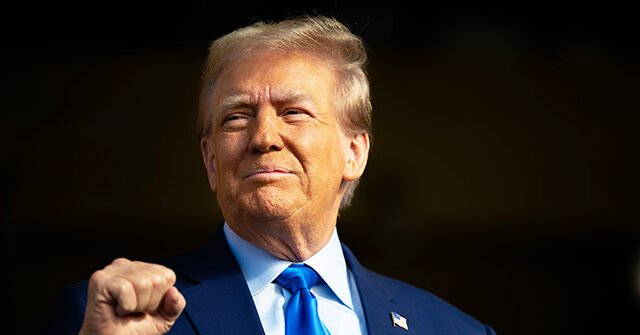Hungary’s Deputy Minister of Foreign Affairs and Trade, Levente Magyar, expressed confidence that the anticipated return of Donald Trump to the U.S. presidency will mark a turning point in the strained diplomatic relations between Hungary and the United States, which have been notably discordant under the Biden administration. Magyar identified a fundamental discrepancy in alignments between the two nations, particularly concerning the ongoing Ukraine-Russia conflict. He voiced Hungary’s urgency for peace, emphasizing the importance of collaborative economic and strategic efforts in resolving current challenges, predominantly from the perspective of economic cooperation and security. The Hungarian Deputy Minister hopes Trump’s leadership will help ameliorate these strains and foster a more productive diplomatic era.
In discussing Hungary’s economic landscape, Magyar highlighted the nation’s considerable reliance on international trade, noting its export-to-GDP ratio of nearly 90%. This dependence renders Hungary especially vulnerable to protectionist measures that could undermine its economic interests. Thus, there is significant optimism about potential negotiations with a future Trump administration, which Magyar believes may prioritize reducing trade barriers and enhancing trade relations between Europe and the United States. He underlined the vital role of Hungary within the EU framework, asserting that the country stands to gain considerably from improved U.S.-Hungary economic ties, particularly as global dynamics shift.
The Deputy Minister also conveyed optimism regarding Hungary’s economic outlook, citing the reaffirmation of the country’s investment-grade status from major credit agencies like Fitch Ratings, Moody’s, and Standard & Poor’s. These ratings reflect a prevailing confidence in Hungary’s economic stability despite external pressures. Magyar described Hungary as “one of the fastest-growing economies in Europe” and characterized its strategic position as a bridge between East and West, asserting that remaining independent of global trade blocs and fostering open economic policies is essential for the nation’s growth prospects.
Addressing the ongoing Ukraine-Russia conflict, Magyar articulated Hungary’s consistent advocacy for dialogue, warning against the potential escalation of the war likely to affect the broader global security landscape. He pointed out that the conflict poses an existential risk to Hungary due to its geographical proximity. The Hungarian government, led by Prime Minister Viktor Orbán, has made overtures to both Russia and Ukraine, advocating for a ceasefire—a proposal that has, unfortunately, been rejected by Ukraine. Magyar expressed concern about the rising threat posed by Russian military advancements and emphasized the necessity of initiating conversations between the warring factions to achieve a ceasefire and ultimately a lasting peace.
In relation to regional instability, Magyar addressed the evolving humanitarian impact stemming from the Syrian conflict, highlighting Hungary’s cautious stance due to its limited direct engagement in Middle Eastern diplomacy. However, he noted the significance of regional stability for both Hungary and Europe at large. The repercussions of the Syrian war, particularly on migration, have resulted in a noticeable refugee crisis in Hungary, prompting the government to reinforce its borders against illegal migration attempts. With nearly one million illegal border crossings recorded last year, Magyar asserted that Hungary’s experience illustrates the broader challenges Europe faces due to the turmoil in the Middle East.
Wrapping up the conversation, Magyar expressed belief that a Trump presidency would herald a renewed era of collaboration between Hungary and the United States, underscoring the potential for bolstered trade and expanded diplomatic channels aimed at conflict resolution. He emphasized the importance of creating an economic environment supportive of collaborative peace efforts, not only in Eastern Europe but globally. Similarly, Hungarian Foreign Minister Péter Szijjártó has voiced that only a strong American leader, such as Trump, can provide the needed stability and security for the international order while advocating for peace in Ukraine. Critiquing Biden’s foreign policy approach, Szijjártó underscored the need for decisive leadership to navigate these complex geopolitical issues effectively, indicating a strong sentiment within Hungary towards shifting U.S. leadership dynamics.

